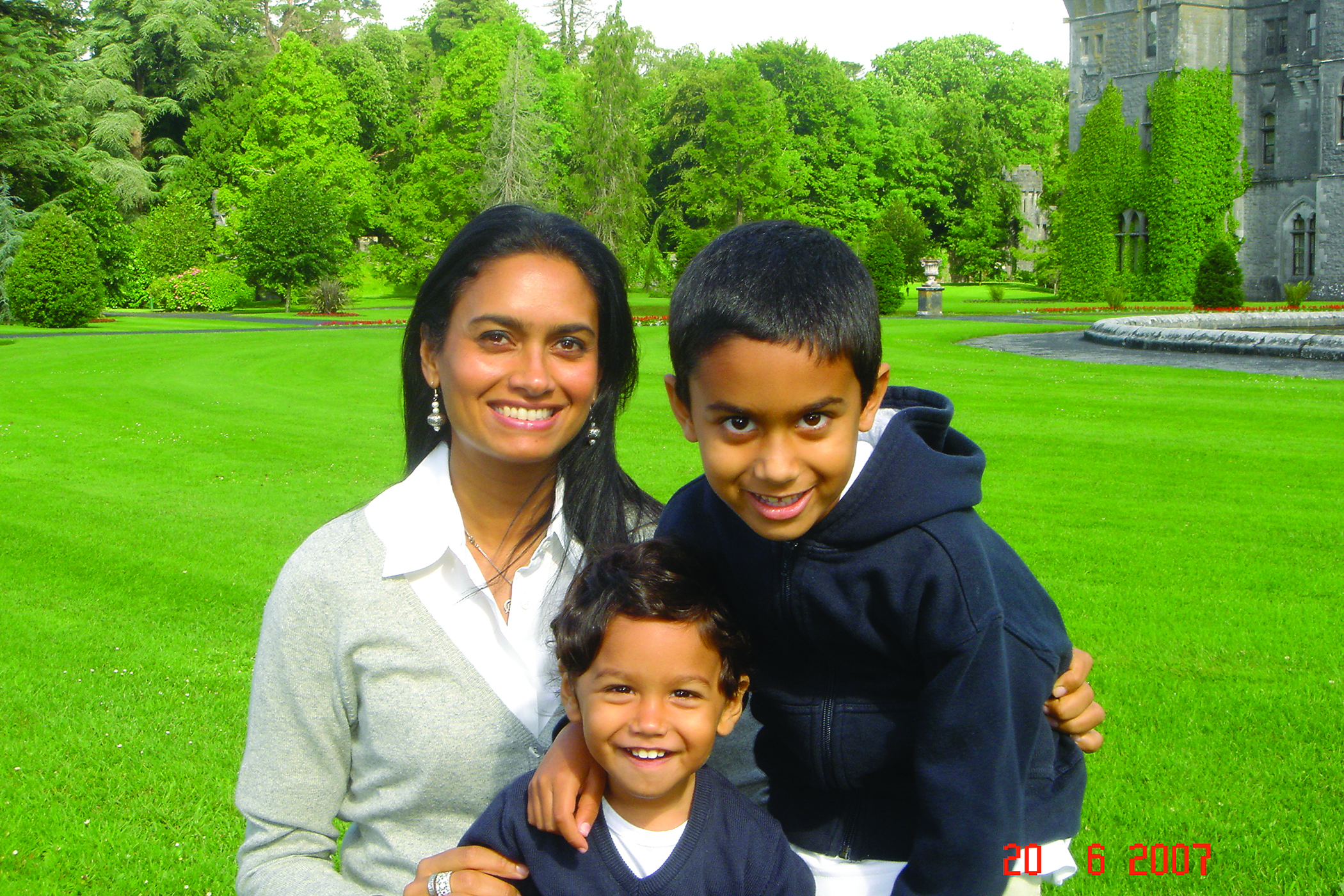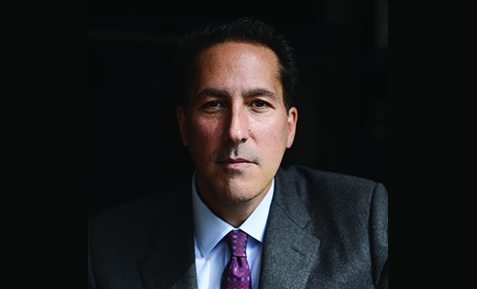In 2019, I published a book titled The Boxer’s Corner (www.theboxerscorner.com). The book was a semi real-time account of my experience as a caregiver during my late wife’s battle with metastatic cancer. In the book I recount the pain, frustration, and isolation I felt in my role as husband, father, and caregiver during her agonizing battle.
Writing Is My Way of Coping
Writing about the experience as it was happening was my way of coping. It forced me to digest and understand what we were going through. They say you can’t explain something you don’t understand. Putting the experience on paper forced me to accept a reality from which one would normally and instinctively wish to hide. But it was our reality, and I needed to face up to it. The book forced me to do so. It was also my way of leaving a transcript of events for my 2 sons, who were too young to fully understand what was happening. I hope they will read it one day as adults and better come to terms with the loss of their beautiful mother.
It has now been more than 4 years since my wife’s passing, and I was glad to accept the invitation to write this article. I find myself once again staring at the white paper, forcing myself to dig deep to understand and articulate what this has all meant to me, to us. To try to express how we have changed and managed to live after such a traumatic experience. To explain how we are supposed to look to the future and try to find happiness. To try to live normal lives after experiencing the brutally abnormal.
Connecting Through Loss
The truth is that this tragedy will never leave us. It is a slow but powerful realization that becomes more embedded in us with every passing day. People often use words like “move on” or “start over” in an attempt to express solidarity and support. These words are used with the best intentions, but they inevitably come from people who don’t understand the profound magnitude of true loss. I don’t mean this in a derogatory or insulting way, but it is true. This is why there is such a powerful and instant connection among widowers. It doesn’t matter the age or background, the gender, race, or nationality.
When you are introduced to somebody who has lost a loved one under similarly tragic circumstances, you feel an instant connection, even before the first word is spoken. I imagine the connection would be similar to that of war veterans or prison inmates who meet after many years. You know that they understand, because they have lived it. And you know that nobody else really can, because true loss cannot be cured or made to disappear. It is like a medical condition you simply learn to live with.
This doesn’t mean you cannot experience happiness, joy, or even love. Eventually, you can. But in the 4.5 years since I lost Nadia, there hasn’t been a single day when I haven’t thought of her in some way. It is triggered by the smallest of things, maybe a song, a dish, a picture, a piece of furniture, a TV show, a word, conversation. It is simply inescapable. You cannot delete 20 years of love and companionship.
I am often asked if my children and I “discuss” the subject. And the answer is, we don’t need to. We are connected by a common experience so powerful and pervasive that it is contained in every glance, every conversation, every moment. It is a dominant and quiet force that we will never be able to escape. We cried together for hours and days after her passing. We are united in our frustration and pain. It is simply something that is there, and that we know will never go away.

Keeping the Elephant at Bay
Our pursuit of happiness in life has been forever affected. This doesn’t mean we are fatalistic, or that we have resigned ourselves to eternal sadness. I would not allow my children to ever give up on life. But we simply cannot ignore the elephant in the room, our condition. I have had dozens of conversations with my children explaining to them that they can still find beauty and happiness in life.
I even took them on a 5-month trip around the world to show them that the world is still beautiful, that there is still so much to see and experience in life, despite their loss. It was an amazing and bonding experience. We spent countless hours together talking about their mother and crying together, but also discovering the world together. By the time we returned to New York, my children were once again capable of smiling and laughing. This was one of the best decisions of my life, which I believe saved them.
So, we have simply learned to live with our loss, knowing that ignoring or forgetting are not an option. My older son is currently applying to college and in one of his application essays describes how the loss of his mother made him more pessimistic about things, all things. But his ability to recognize it and explain it means that he is aware of it and is dealing with it in his own way. The only way to find happiness in our condition is to acknowledge and accept that it is a part of us that will never go away.
The Initial Anger
But the road to this realization, this new normal, was not easy. In the months after our loss, I was plagued with an overwhelming sense of anger, and it bled into my relationships and interactions with others. I was angry at everybody and everything. I could not understand why my wife was made to suffer for 2 entire years. I could not accept that all her efforts to survive were in vain. I was angry that my wife would never see her children grow up. I was angry that my children would forever be scarred by the senseless injustice of losing their mother in the most vulnerable stage of their lives.
This anger conditioned my relationships and behavior. I was destructive and despondent. I felt that nobody in the world could understand what she and I and our children had to live through. Our friends and family had always been supportive during Nadia’s illness, but when they left the house and shut the door behind them, only we bore witness to the real, agonizingly slow tragedy unfolding before us. I felt betrayed by the world, by the forces of nature, and the universe. Nobody could possibly understand it.
Anger Turning to Revenge
And so, I indulged in whatever behavior I wanted, without care for the consequences or for whom I hurt in the process. I had a short temper and found any excuse to tear into anybody at the slightest provocation. I had no care whatsoever for what anybody around me said or thought. I went out with countless women without a care for how I would affect them. I would “test” them to prove to myself that they were not Nadia, nobody worthy of my love. It was cruel and destructive. But everybody was fair game in my mind, as I exacted my revenge on the world that had taken my wife, my Nadia.
Thankfully, with the passage of time, this anger began to subside. I began to see that my resentment and anger were never going to change my reality. I began to reflect on what I was doing. And I began to see the damage I was doing to others, especially to the women who had the misfortune of crossing my path during those first 2 years.
I began to understand why I had been reacting the way I had, and I became conscious of my actions once again. And with the passage of time I was even able to once again “feel” something for other women. I began to see them uniquely and without prejudice. I was able to appreciate their unique, individual traits without drawing comparisons or setting unrealistic benchmarks. I shed my need to subject them to a test I knew they could never pass.
Healing Through Acceptance
My heart was healing and opening once again, slowly, and at a pace I could not control. It became clear that all of this was part of a natural process of acceptance that required time. I needed to go through my “angry phase” to arrive finally at the realization that Nadia will not come back, that the memories of our experience will never disappear, and that I would have to learn to live with the weight of that experience for the rest of my life. It was a part of me now, like my skin or the color of my eyes.
None of this is to say that others in my situation may experience things differently. We are all unique, and we react to our circumstances in our unique way. But for me, for us, acceptance was the only path to rebuilding our lives. It was the only way to find the strength and peace necessary to look to the future and once again to enjoy life—a veritable gift we now cherish with newfound respect and appreciation.






